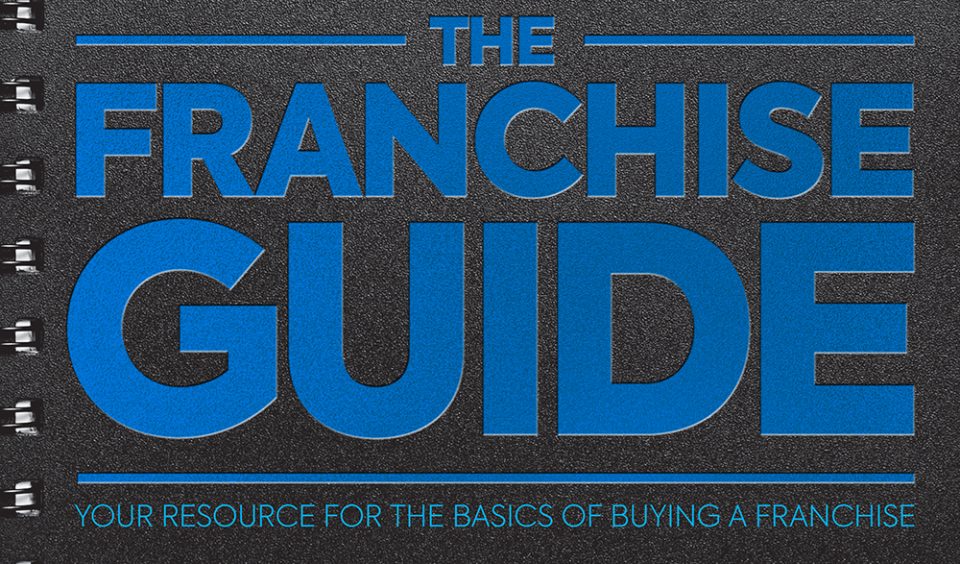If you’re looking to invest in your own franchise business, the big question you need to answer is how you’re going to finance this major investment. Before you start down this path, you need to make sure you understand the different financing options and programs available so you can not only get off to a strong start, but also successfully maintain your business for years to come.
At the Franchise Canada Show in Toronto this past February, Lalit Jagasia, Regional Franchise Business Development Manager (Franchise Financing) with Scotiabank, shared his insight into the “Fundamentals of Franchise Financing.”
Here are the key learnings from his presentation:
General requirements of a business loan
Business loans are a key form of franchise financing. To be considered for a loan from your bank, you need to provide some of these general documents. Banks may require additional documents/information specific to your requirement:
Personal:
- Net worth form – Statements supporting assets indicated in the form, including three months of bank statements confirming the owner’s equity (per owner)
- Latest two years personal notice of assessment (NOA’s) & T1 Generals
- Two pieces of ID (per owner)
- Gift Letter (per gifter/if applicable)
Business:
To apply for a business loan, you need to be able to provide the lender with a business plan that outlines the following:
- Business Plan to include: Marketing plan, SWOT analysis, itemized explanation of project costs (for new builds/renovations), three-year projected income and opening balance sheet, write-up with details of location to be purchased, resume(s) (per owner).
- If available, franchise agreement (can be submitted after approval if not already finalized)
- Purchase/sale agreement with breakdown of costs: goodwill, leaseholds, equipment, etc. (if purchasing existing business)
- Lease agreement or letter of intent (a draft is okay to start)
- Certificate/articles of incorporation (can be submitted after approval if not already incorporated)
- Two years corporate notice of assessment (if purchasing existing business)
- Two years of financial statements from the existing business (if purchasing existing business)
- Latest financial statements from any business(es) owned (per owner, per business)
- Information exchange waiver as applicable (consent to communicate with the franchisor)
What is the importance of a business plan?
A business plan is vital because it allows you to arrange your thoughts in a logical order to include your vision for the business. It will look at what you want your business to become, describing what your business will look like in two, five, and 10 years. It will also map out your financial future, including a SWOT analysis (strengths/weaknesses/opportunities/threats), marketing plan, resume, start-up costs and total project cost, projections and opening balance sheet, and summary.
Where can you get the money/equity?
There are many different sources for financing, including:
- Personal funds (Equity)
- ‘Love capital’ (Equity – gift from your immediate family)
- Partners (Equity)
- Investors (Equity)
- Government programs
- Financial institution – Business Advisor/Manager
- Bank accounts
- Credit lines
- Operating loans
- Term loans
Get your business up and running
It’s imperative that you work with professionals with expertise in franchising to ensure you’re making the best investment decisions. You should solicit the following advisors, who can provide support and fill in any knowledge gaps for you:
- Your banker/advisor
- Accountant
- Commercial lawyer
- Volunteer business mentor
- Consultants/experts
Loans
The following loans are available as a source for franchise financing:
- Business credit line (revolving credit)
- Operating line of credit
- Credit cards
- Non-revolving term loans for new/existing franchise purchases and renovations.
- Term loans for franchisees with experience
- Government-secured business loans (CSBFA) with up to 90 per cent financing for leasehold improvements, renovations, purchase of equipment, purchase of vehicle
Final advice
Before you make any investment decisions, you need to meet with your banker and/or business advisor. It’s also critical that you do plenty of research before getting started, including finding and investing in the right experienced advisors. To find future success, you need to be unique in your marketplace and remember that owner-operator franchisees perform better, so be prepared to be hands-on in your business.
Lalit Jagasia | Regional Franchise Business Development Manager
Scotiabank | Commercial Banking
lalit.jagasia@scotiabank.com
scotiabank.com
Scotiabank is a business name used by The Bank of Nova Scotia
About Lalit Jagasia – Having joined Scotiabank in 2011, Lalit has held several progressive roles in the bank starting in its Multicultural Banking division (overseas onboarding), retail banking as a Branch Manager until his current position as Regional Business Development Manager at the bank’s National Franchise Office. An out of the box thinker with diversified experience in different areas of the bank, he is very passionate about franchising and brings with him a lot of industry expertise in franchise financing.


